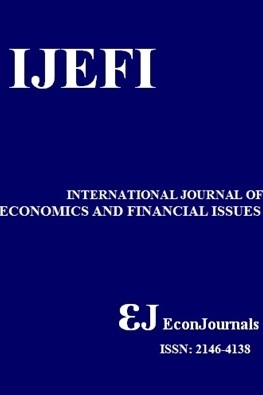Lock-up Expiry and Trading Volume Behaviour of Malaysian Initial Public Offering’s
Lock-up Expiry and Trading Volume Behaviour of Malaysian Initial Public Offering’s
- Başlangıç: 2011
- Yayıncı: İlhan ÖZTÜRK
Mohammed Yussoff IBRAHİM, Zulkipli GHAZALİ, Haseeb Ur RAHMAN
Aamir Iqbal Umrani, Satirenjit Kaur Johl
Corporate Default Prediction with Industry Effects: Evidence from Emerging Markets
Maryam Mirzaei, Suresh Ramakrishnan, Mahmoud Bekri
Issues in Transformation from Conventional Banking to Islamic Banking
Muhammad Usman Arshad, Mohammed Effandi Yusoff, Muhammad Sohail Tahir
Entrepreneurship and Business Ethics: Implications on Corporate Performance
Mercy Ejovwokeoghene OGBARİ, Adunola Oluremi OKE, Adeyemo A. IBUKUNOLUWA, Musibau Akintunde Ajagbe, Andrew Cat Ologbo
Zul-atfi ISMAİL, Azrul A. MUTALİB, Noraini HAMZAH
Zulkipli Ghazali, Muhammad Zahid, Tan Siok Kee, M. Yussoff Ibrahim
Zeeshan AHMED, Muhammad Zahid Awan, Muhammad Zulqarnain Safdar, Tafakhar Hasnain, Muhammad Kamran
Default Prediction in Pakistan using Financial Ratios and Sector Level Variables
Suresh Ramakrishnan, Agha Amad Nabi, Melati Ahmad Anuar
Insurable Interest in Takaful: A Theoretical Contrivance for Islamic Insurers
